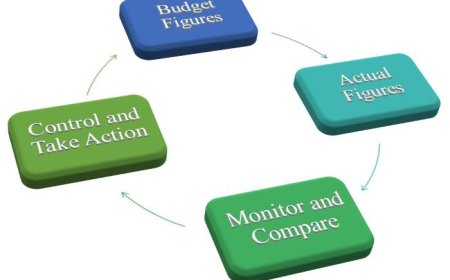Blockchain Technology: A Paradigm Shift in Data Management
Explore how blockchain technology is transforming data management through decentralized systems, cryptographic security, and transparent transactions. Discover its applications and benefits in various industries.

Introduction
Blockchain technology has emerged as a revolutionary force in data management, presenting a decentralized approach that challenges traditional systems. Initially developed as the underlying technology for cryptocurrencies like Bitcoin, blockchain has proven its potential to transform various sectors beyond finance. Its unique characteristics—transparency, security, and immutability—make it ideal for managing complex data transactions and decentralized applications. This essay explores the fundamental principles of blockchain technology, its applications across various industries, the challenges it faces, and its potential to redefine data management practices globally.
At its core, blockchain operates as a distributed ledger that records transactions across multiple computers, ensuring that the data cannot be altered retroactively without the consensus of the network. This decentralized nature eliminates the need for intermediaries, thereby reducing costs and increasing efficiency. The transparency afforded by blockchain allows all participants in the network to access the same information, fostering trust and accountability. As a result, industries such as supply chain management, healthcare, and real estate are beginning to harness this technology to streamline operations and enhance data integrity.
In supply chain management, blockchain facilitates real-time tracking of goods, enabling stakeholders to verify the authenticity and origin of products. This not only enhances consumer trust but also mitigates the risks of fraud and counterfeiting. The healthcare sector benefits from blockchain’s ability to securely store and share patient records, ensuring that sensitive information is accessible only to authorized personnel while maintaining patient privacy. In real estate, blockchain simplifies property transactions by automating processes such as title transfers and escrow services, significantly reducing the time and costs involved.
Despite its promising applications, blockchain technology faces several challenges that must be addressed for widespread adoption. Scalability remains a critical concern, as many existing blockchain networks struggle to handle a high volume of transactions efficiently. Additionally, regulatory uncertainties and the need for standardization can hinder the integration of blockchain into existing systems. Moreover, the environmental impact of energy-intensive consensus mechanisms, particularly in proof-of-work systems, raises questions about sustainability.
Blockchain technology holds the potential to redefine data management practices globally, offering innovative solutions that enhance transparency, security, and efficiency across various sectors. As industries continue to explore its capabilities, overcoming the inherent challenges will be essential to unlocking the full potential of this transformative technology. The journey toward a blockchain-enabled future is not merely a technological evolution; it is a paradigm shift that could reshape the very fabric of how we manage and interact with data.
Understanding Blockchain Technology
- What is Blockchain? At its core, a blockchain is a distributed ledger technology (DLT) that enables secure and transparent record-keeping across multiple locations. A blockchain consists of a series of blocks, each containing a set of transactions. Once created, these blocks are linked in chronological order, forming a "chain." Each block includes:
- Transaction Data: Details of the transactions being recorded.
- Timestamp: The exact time the block was created.
- Hash: A unique cryptographic hash of the block, linking it to the previous block and ensuring data integrity.
- Key Characteristics of Blockchain
- Decentralization: Unlike traditional databases that rely on a centralized authority, blockchain operates on a peer-to-peer network, distributing copies of the ledger across all participating nodes. As a result, there is no single point of failure, and control is distributed among participants. This decentralization fosters resilience, making the system less vulnerable to attacks or failures.
- Transparency: All participants in the network can access the entire blockchain, enabling visibility of transactions and activities. This transparency fosters trust among users, as every transaction can be independently verified. In sectors like finance and supply chain management, this characteristic can significantly enhance accountability and traceability.
- Immutability: Once a block is added to the blockchain, it is nearly impossible to alter or delete its contents. This characteristic enhances data integrity and reduces the risk of fraud. Immutability ensures that historical records remain intact, providing a reliable audit trail that can be invaluable in legal and regulatory contexts.
- Consensus Mechanisms: Blockchain networks use consensus mechanisms (such as Proof of Work or Proof of Stake) to validate and agree on the authenticity of transactions. This process prevents unauthorized changes to the ledger and ensures that all participants agree on the current state of the blockchain. By requiring a consensus among nodes, these mechanisms help maintain the security and reliability of the network.
- Applications of Blockchain Technology The implications of blockchain technology extend far beyond cryptocurrencies. Industries such as healthcare, real estate, and logistics are increasingly exploring blockchain to improve efficiency and reduce costs. For instance, in healthcare, blockchain can facilitate secure sharing of patient records while maintaining privacy. In real estate, it can streamline property transactions by providing a transparent and tamper-proof record of ownership.
The transformative potential of blockchain technology lies in its ability to create a more secure, transparent, and efficient framework for data management. As organizations continue to explore and adopt this innovative technology, its applications are likely to expand, reshaping industries and redefining trust in the digital age.
Applications of Blockchain Technology
Blockchain technology has found applications across a range of industries, demonstrating its versatility and transformative potential.
-
Finance and Banking Blockchain's most prominent application lies in the financial sector. By facilitating peer-to-peer transactions, it eliminates the need for intermediaries like banks, reducing transaction fees and processing times. Cryptocurrencies, powered by blockchain, have introduced new ways to transfer value digitally. Additionally, blockchain enables the creation of decentralized finance (DeFi) platforms, offering services such as lending, borrowing, and trading without traditional financial institutions. This democratization of finance not only empowers individuals but also fosters financial inclusion for underserved populations globally.
-
Supply Chain Management In supply chain management, blockchain technology enhances visibility and traceability by securely recording each step of the product journey. Stakeholders can easily access real-time data about the origin, processing, and delivery of goods. This transparency helps reduce fraud, streamline operations, and ensure compliance with regulations. Companies like IBM and Walmart have implemented blockchain solutions to track food products, improving response times in the event of recalls or contamination. Furthermore, the integration of IoT devices with blockchain can provide real-time updates, enhancing the efficiency of logistics and inventory management.
-
Healthcare Blockchain technology has the potential to revolutionize healthcare by providing secure access to patient records while maintaining privacy. Patients can control their health data and grant access to authorized providers while ensuring that their information remains tamper-proof. Additionally, blockchain can help in supply chain management for pharmaceuticals by tracking drug production and distribution, preventing counterfeiting, and ensuring quality. This capability is crucial in maintaining the integrity of medications and safeguarding public health, particularly in the face of rising concerns over counterfeit drugs.
-
Real Estate In real estate, blockchain streamlines property transactions by providing transparent land registries and digital ownership records. Smart contracts—self-executing agreements with the terms directly written into code—can automate transaction processes, reducing the need for intermediaries and minimizing the risk of fraud. This innovation not only accelerates the buying and selling process but also enhances trust among buyers and sellers. Moreover, blockchain can facilitate fractional ownership, allowing investors to own shares in properties, thus democratizing access to real estate investment opportunities.
-
Voting Systems Another promising application of blockchain technology is in voting systems. By utilizing blockchain, electoral processes can achieve unprecedented levels of security and transparency, ensuring that votes are accurately recorded and counted. Voter identities can be verified without compromising privacy, thereby preventing fraud and increasing public trust in the electoral process. This application could lead to higher voter turnout and more representative governance.
As industries continue to explore and implement blockchain solutions, the technology's potential to enhance security, transparency, and efficiency remains a beacon of innovation across various sectors.
Challenges Facing Blockchain Technology
While blockchain presents numerous advantages, several challenges must be addressed to realize its full potential.
-
Scalability Scalability remains a significant hurdle for blockchain implementations. As more transactions are processed, blockchain networks can become congested, leading to slower speeds and higher transaction costs. Solutions like sharding and layer 2 scaling techniques are being explored to enhance capacity and throughput. Additionally, innovations such as sidechains and state channels are being developed to alleviate congestion by allowing transactions to occur off the main chain, thereby improving efficiency without compromising security.
-
Regulatory Concerns The decentralized nature of blockchain raises regulatory challenges for governments and organizations. Compliance with existing laws and regulations, particularly concerning data privacy and anti-money laundering requirements, can be complex. Regulatory clarity is essential for businesses looking to adopt blockchain technology. Furthermore, the global nature of blockchain complicates regulatory efforts, as different jurisdictions may have varying approaches to governance. Collaborative dialogues between regulators, industry leaders, and blockchain developers are crucial in establishing a balanced framework that fosters innovation while ensuring consumer protection.
-
Energy Consumption Certain consensus mechanisms, particularly Proof of Work, are energy-intensive and raise concerns about their environmental sustainability. Efforts are being made to develop more energy-efficient consensus mechanisms, such as Proof of Stake, to address these concerns while maintaining network security. Moreover, integrating renewable energy sources into blockchain operations can further mitigate environmental impacts. The ongoing research into hybrid consensus models also holds promise, potentially combining the strengths of various mechanisms to achieve both efficiency and security.
-
Adoption and Awareness The successful implementation of blockchain technology relies on widespread adoption and understanding across various stakeholders. Educational efforts and collaborative initiatives are necessary to demystify blockchain and demonstrate its practical applications. By fostering partnerships between academia, industry, and government, stakeholders can create a more informed ecosystem that encourages innovation. Furthermore, case studies showcasing successful blockchain implementations in diverse sectors—such as supply chain management, healthcare, and finance—can serve as powerful tools to illustrate the technology's potential and drive greater acceptance.
While blockchain technology holds transformative potential, addressing these challenges is imperative for its sustainable growth. By prioritizing scalability, regulatory clarity, energy efficiency, and education, stakeholders can unlock the full capabilities of blockchain and pave the way for a more decentralized and equitable future.
The Future of Blockchain Technology
The future of blockchain technology holds immense promise as it continues to evolve and gain traction across various sectors. Several trends and developments are likely to shape its trajectory:
-
Integration with Other Technologies As blockchain matures, its integration with emerging technologies like artificial intelligence, the Internet of Things (IoT), and big data analytics will enhance its capabilities and applications. This convergence will enable smarter decision-making and more efficient systems. For instance, in supply chain management, blockchain combined with IoT can facilitate real-time tracking of goods, ensuring transparency and reducing fraud. AI can analyze blockchain data to predict trends, optimize operations, and enhance user experiences.
-
Rise of Decentralized Applications (dApps) The growth of decentralized applications built on blockchain platforms will enable users to conduct a wide range of activities without relying on centralized entities. As dApps gain popularity, they will further demonstrate the potential of blockchain technology to disrupt traditional business models. From decentralized finance (DeFi) applications that empower individuals to manage their finances without intermediaries to gaming platforms that allow players to truly own their in-game assets, the rise of dApps will foster a new era of user autonomy and innovation.
-
Enhanced Interoperability Interoperability between different blockchain networks will be crucial for broader adoption. Efforts to develop cross-chain protocols and standards will facilitate communication and collaboration between various blockchain ecosystems. This will allow for seamless transactions and data sharing across platforms, creating a more cohesive blockchain landscape. As organizations increasingly seek to leverage multiple blockchain solutions, enhanced interoperability will be a key driver of efficiency and scalability.
-
Increased Regulatory Frameworks As blockchain technology continues to gain traction, regulatory frameworks will evolve to address concerns related to privacy, security, and compliance. A balanced approach that encourages innovation while ensuring consumer protection will be necessary for the industry’s growth. Governments and regulatory bodies will need to collaborate with industry stakeholders to create guidelines that foster responsible use of blockchain while mitigating risks associated with its adoption.
-
Sustainability and Environmental Impact As awareness of environmental issues grows, the blockchain industry will increasingly focus on sustainability. Innovations such as energy-efficient consensus mechanisms and carbon offset initiatives will be developed to address the ecological footprint of blockchain operations. By prioritizing sustainability, the industry can position itself as a leader in promoting responsible technology.
The future of blockchain technology is poised for transformative growth, driven by integration with emerging technologies, the rise of decentralized applications, enhanced interoperability, evolving regulatory frameworks, and a commitment to sustainability. As these trends unfold, blockchain has the potential to redefine industries and empower individuals in unprecedented ways.
Conclusion
Blockchain technology represents a paradigm shift in data management, with the potential to transform industries and promote secure, transparent, and efficient processes. Its unique characteristics of decentralization, transparency, and immutability have already begun to reshape areas such as finance, supply chain management, healthcare, real estate, and voting systems. As we delve deeper into its applications, we uncover a wealth of opportunities that extend beyond mere transactional efficiency.
In finance, blockchain is revolutionizing traditional banking systems by enabling peer-to-peer transactions that bypass intermediaries, reducing costs and enhancing speed. Cryptocurrencies, underpinned by blockchain, have emerged as alternative assets, offering individuals greater control over their wealth. Meanwhile, smart contracts facilitate automated agreements, minimizing the risk of fraud and disputes.
In supply chain management, blockchain enhances traceability and accountability. Every transaction is recorded on a public ledger, allowing stakeholders to track products from origin to consumer. This transparency not only improves trust among parties but also empowers consumers to make informed choices about the products they purchase, fostering ethical consumption.
The healthcare sector is experiencing a similar transformation. Blockchain's ability to securely store and share patient records ensures that data is accessible only to authorized individuals, promoting privacy while facilitating better patient care. This technology can also streamline clinical trials and drug supply chains, ensuring the integrity of data and reducing the risk of counterfeit medications.
Real estate transactions, traditionally fraught with complexity, are becoming more straightforward through blockchain. By digitizing property titles and automating the transfer process, blockchain reduces closing times and enhances security, making home buying more accessible.
Voting systems stand to benefit immensely from blockchain as well. By providing a secure and transparent method for casting and counting votes, this technology can help restore trust in electoral processes, ensuring that every voice is heard and counted accurately.
While challenges remain in scalability, regulation, and energy consumption, continued innovation and collaboration will overcome these obstacles. As the world embraces the transformative power of blockchain, it will redefine how individuals and organizations manage data, fostering a future characterized by trust, efficiency, and empowerment.
The journey of blockchain technology is only beginning, and its full impact on society is yet to be realized. As we move forward, it is imperative that stakeholders from all sectors work together to harness this technology responsibly, ensuring that its benefits are widespread and equitable. In doing so, we will not only unlock its potential but also pave the way for a more transparent and resilient global economy.
What's Your Reaction?
 Like
0
Like
0
 Dislike
0
Dislike
0
 Love
0
Love
0
 Funny
0
Funny
0
 Angry
0
Angry
0
 Sad
0
Sad
0
 Wow
0
Wow
0










































